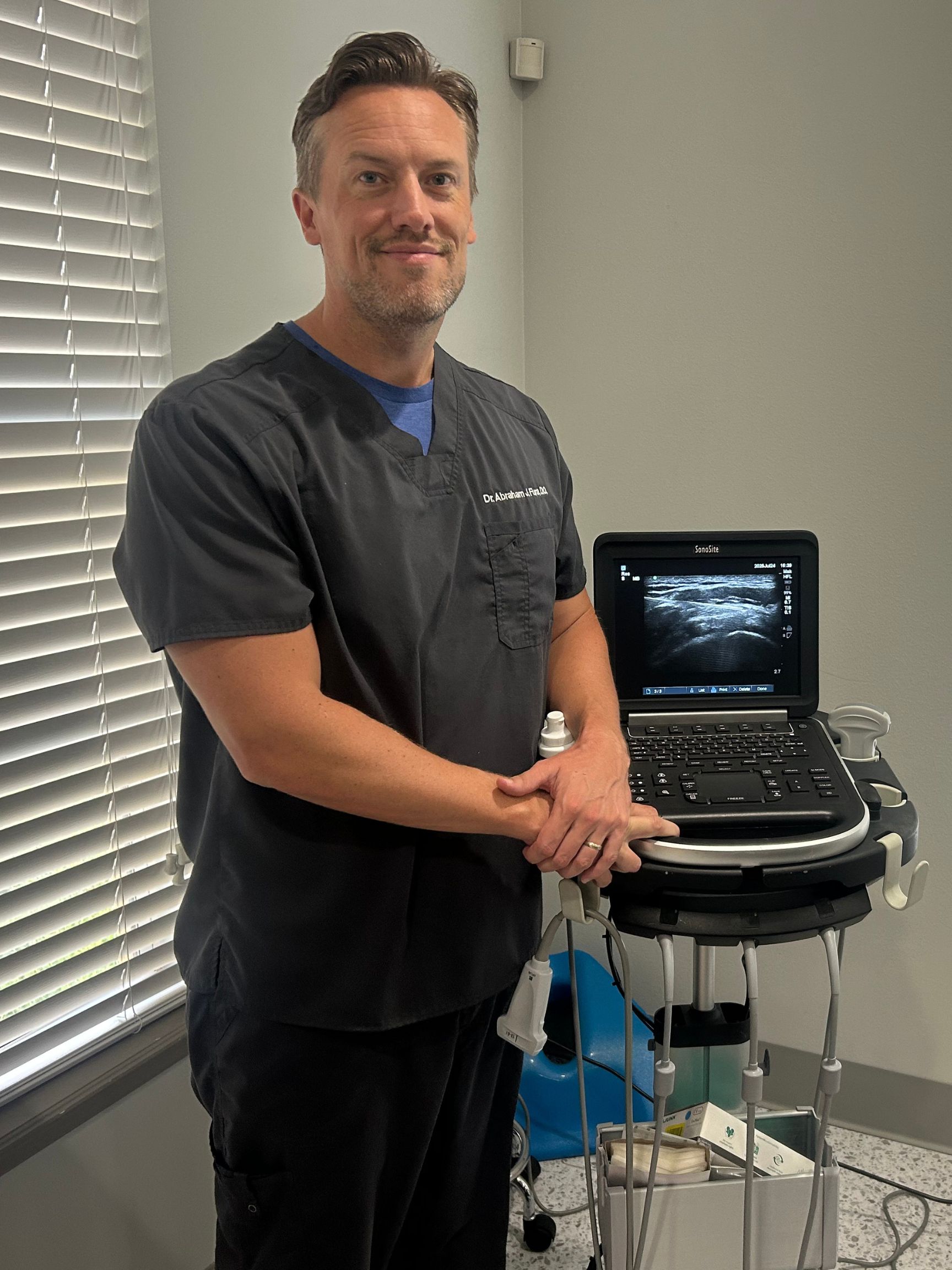
CONDITION OVERVIEW
Carpal Tunnel Syndrome is a common condition that causes numbness, tingling, and weakness in the hand and arm. It occurs when the median nerve, one of the major nerves to the hand, is squeezed or compressed as it travels through the wrist. The carpal tunnel is a narrow passageway of ligament and bones at the base of the hand which houses the median nerve and tendons. For many patients, symptoms start gradually and can worsen over time, potentially leading to permanent nerve damage if left untreated.

ROOT CAUSES
Carpal Tunnel Syndrome isn't usually caused by a single factor. More often, it's a combination of factors that increases pressure on the median nerve and tendons in the carpal tunnel. Anything that crowds, irritates, or compresses the median nerve can be a trigger.
Working with vibrating tools or performing prolonged, repetitive wrist-flexing activities (like typing or assembly line work) can aggravate the tendons, causing swelling that pressures the nerve.
Some individuals are born with a smaller carpal tunnel. A previous wrist fracture, dislocation, or arthritis can also alter the space within the tunnel and compress the nerve.
Chronic illnesses like diabetes, rheumatoid arthritis, and thyroid gland imbalances are associated with a higher risk of developing carpal tunnel syndrome.
Fluid retention during pregnancy and menopause can increase pressure within the carpal tunnel, often leading to temporary or chronic symptoms.

RECOGNIZING THE SIGNS
Symptoms typically start slowly and can occur at any time. Many patients find their symptoms worsen at night, often disrupting their sleep. Key signs include:
A "pins and needles" feeling in the thumb, index, middle, and ring fingers. This sensation often occurs while holding a steering wheel, phone, or newspaper.
Diminished grip strength, which may cause you to drop objects. This is due to weakness in the pinching muscles of the thumb, which are also controlled by the median nerve.
Pain and burning sensations that travel up the forearm toward the shoulder. This pain is not confined to the wrist itself.
Waking up with the need to "shake out" your hands due to numbness is a very common symptom, as wrists often bend during sleep, increasing nerve pressure.
Occasional, intermittent shock-like sensations that radiate to the thumb and the index, middle, and ring fingers.
Some individuals experience difficulty distinguishing between hot and cold by touch in the affected fingers due to nerve compression.
If you're experiencing numbness, tingling, or weakness in your hands, don't wait for it to get worse. Schedule a consultation at the Spine and Nerve Center Riverview. Dr. Abraham J. Fura can provide an accurate diagnosis and develop a personalized treatment plan to bring you lasting relief.